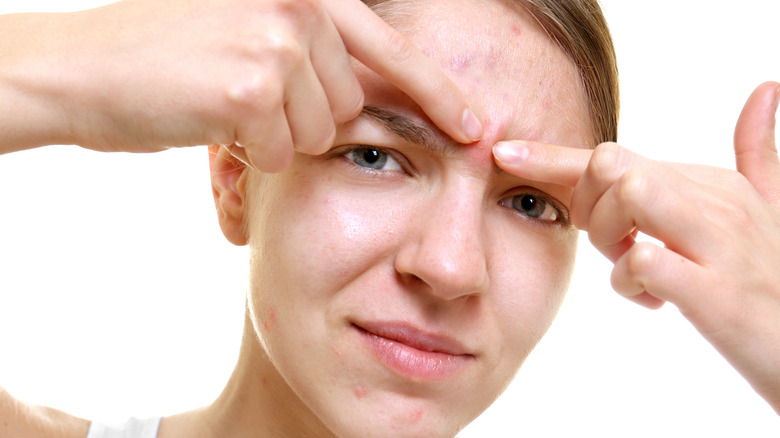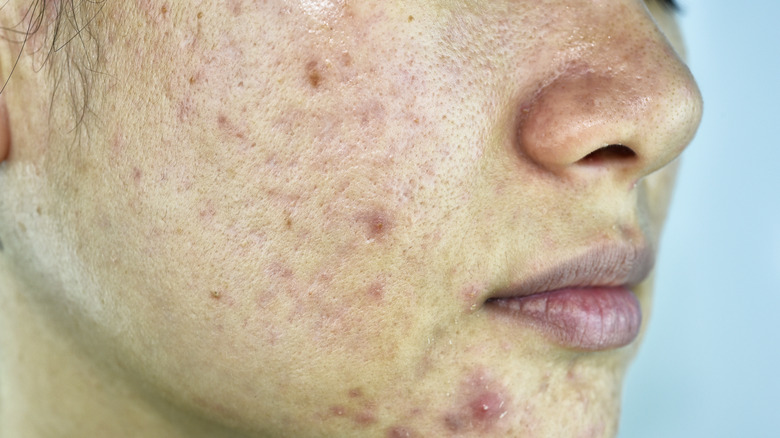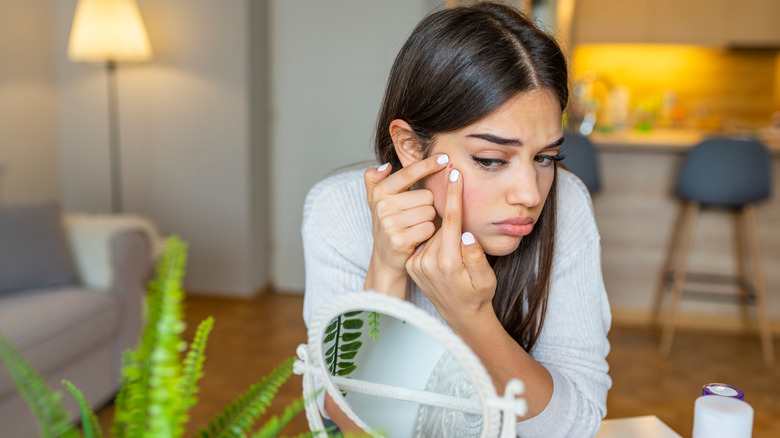Is Popping Pimples Bad For You?
We've been taught, ever since we were acne-prone teenagers, to leave our pimples alone. But, sometimes, it's just too tempting, or they look so gross that squeezing them is the only way to get rid of the blemishes. Is popping pimples really that bad, or can we get away with doing it every once in a while?
Dermatologist Dr. Joshua Zeichner spoke to Insider about when it's safe to squeeze the goo out, and when we should really leave pimples alone, while the legendary Dr. Pimple Popper encourages treating skin kindly after the fact to decrease breakouts.
Know your pimples before popping them
First and foremost, the most important thing to note is what kind of pimple it is, because this will guide whether the sucker is safe to pop. As Dr. Zeichner notes, sometimes popping pimples is necessary because exfoliation simply isn't going to do you any good.
"Ultimately, the blockages in pimples have only one place to go, which is out," he advised. "In some cases, unless pimples are manually extracted, they can stick around for years. The act of opening up a pimple can help treat the skin provided it is done the correct way."
Bumps with pus at the surface, otherwise known as pustules, should be reasonably easy to pop, but whiteheads might be more difficult and may even require a sterile needle or blade. If you have a hard-to-deal-with whitehead, it's a good idea to book a dermatologist appointment to get rid of it rather than trying to squeeze it yourself.
The only pimples you absolutely shouldn't pop are papules, cysts, and/or nodules, which present as hard, red bumps that are painful to touch and feel as though they have roots deep beneath the skin. These might feel ready to pop but doing so won't work, and trying will likely cause more harm than good.
Treat your pimples kindly while popping them
Basically, you need to treat popping pimples like a "surgical procedure," which means washing your hands and face thoroughly in preparation, and then using Q-tips, rather than your fingers, to press down gently on the sides. However, "If the blockage does not come out easily, then leave it for another day," Zeichner advises, as forcing a pimple that isn't ready to come out could cause increased inflammation and irritation, which could cause it to last longer — and possibly even scar.
After you've popped the pimple, apply an antibiotic spot cream afterward so the skin can heal properly. Dr. Pimple Popper herself, Sandra Lee, spoke with The Healthy and actually encouraged the use of a moisturizer as you care for acne-prone skin. It might feel as though it's making you greasier, but provided you're using the right product for your skin type, moisturizer should help — rather than hinder — if you're broken out. "You will probably need more moisturizer because they're designed to decrease oil on the skin. Moisturizer keeps skin hydrated, supple and looking good," she advised.


